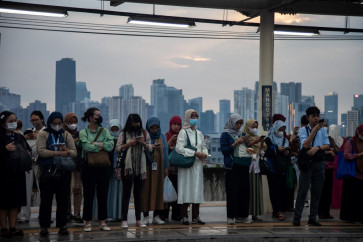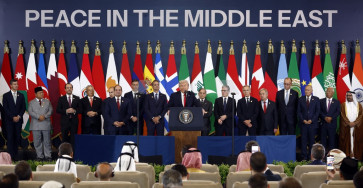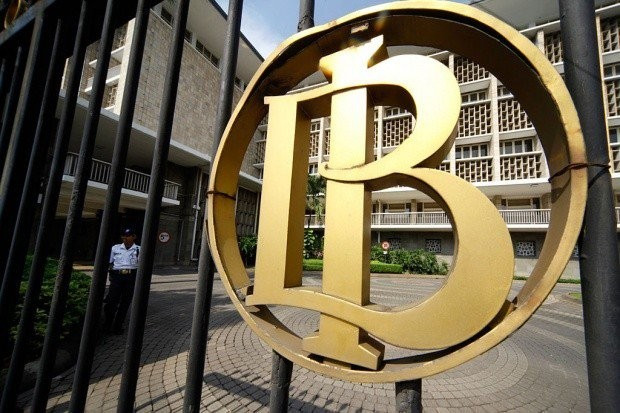Popular Reads
Top Results
Can't find what you're looking for?
View all search resultsPopular Reads
Top Results
Can't find what you're looking for?
View all search resultsChina can launch democracy drive, with caveats
A liberal China would definitely not embrace any Western political model. It could, however, become more capable of accommodating and accepting its people’s opinions, including dissenting views.
Change text size
Gift Premium Articles
to Anyone
W
ith signs of rapprochement among China, the United States and Europe, Beijing is busy in a new global diplomatic effort to promote its own brand of multilateralism.
Though I disagree on many fronts with the policies of the Chinese Communist Party, I welcome such initiatives, though with some important caveats.
The Global Development Initiative and its twin, the Global Civilization Initiative, both represent an ambitious holistic policy framework. Setting apart the Global Security Initiative (GSI), which I am much wearier of, the former two could really bring positive developments, especially in the global South.
First, China has undoubtedly made a lot of progress in the field of development and poverty eradication and, at the same time, certainly the whole world would be richer if more Chinese traditions and culture were disseminated.
Yet why not add one more initiative? China could launch the Global Deliberative Democracy Initiative (GDDI).
As I have written previously, China is not a simple authoritarian regime but rather a much more complex political system with unique political features.
Authoritarianism is a key element but not the only one. Among other aspects, there is grassroots democracy which is basically a way, at least on paper, to collect people’s demands and needs, giving citizens locally some powers, including decision-making.
While it all sounds great, we know that there are limitations to this model and experts in the subject of democracy are conscious of the challenges related to the promotion of true, free-of-coercion, deliberative practices in China.
Still, the model is intriguing and why not for Beijing to spread it around the globe? Other nations could learn from it and adjust it to their local contexts, especially those where people’s freedoms are not only enshrined in their constitutions but also wholly and fully practiced.
Yet before being able to launch this new initiative and before incurring any almost inevitable criticism of hypocrisy, China should reform internally. This idea stems from what I call my obsession to understand if countries normally referred to as nondemocratic can become more liberal.
The bottom line is I am fascinated to understand if a one-party system like China’s or Vietnam’s, both brutal in many ways but also very effective on others, can evolve by opening up more.
I am not suggesting the term liberal as known in political science in the West. Rather a quest for a more liberal China is necessarily driven by a high dose of pragmatism, it cannot be otherwise: a liberal China would definitely not embrace any Western political model. It could, however, become more capable of accommodating and accepting its people’s opinions, including dissenting views.
Deliberative democracy, the key ingredient of what the political establishment in Beijing calls the “whole-process people democracy”, could represent a blueprint to do so.
But if a change is gradual and limited, it cannot only be cosmetic. In order for this model to be true to its aims and aspirations – empowering people by giving them a real voice, something that, in principle, is much more appealing than a system exclusively centered on representation through elections – China needs to enable its people to truly express themselves.
We know it is not happening and we know that if on the one hand, the “whole-process people democracy” allows discussions and debate and even some elective practices locally, on the other hand, censorship and crackdowns on contrasting views are stronger than ever in China.
Such inconsistency could be partially and gradually erased if the deliberative system in place is further developed together with a new role that the state media could play in allowing more criticism to appear in both their printed and online editions.
Perhaps for a start, it is only criticism according to the “Chinese way” that is permitted. While I wish that a nation like China could immediately adopt universal practices in matters of freedom of expression, I am fully conscious that this is not going to happen any time soon.
Instead, what media, either directly or indirectly controlled by the state, could do is expand their op-ed sections to those who normally would have been precluded from publication.
Those social media platforms and messaging apps allowed to operate, already, in many ways are a source for people to express their grievances. Why not let them act as they are supposed to be, platforms for people to exchange their views without fear?
In this way, citizens, including intellectuals well aware of the limitations of this new opening, would feel “safer” to share “constructive” criticism toward the state, including politicians. Strengthening deliberative practices, a more unconstrained press and less control of social media would represent a powerful shift for China.
In the short term, the criticisms emerging from these new policy decisions might be interpreted as a danger to the survival of the party. But slowly the same should become just an annoyance like when political leaders in the West are pissed by the press but they know that criticism is a potent element of their political systems.
Such a new opening paradigm could also be a smart move for the establishment because red lines, even if lowered, will always be in place and it could be one of the best ways to deal with the inevitable transformations unfolding around the world.
Considering the challenges that China is facing, including of an economic nature, the costs of a partial and gradual renewal in freedoms could be seen as “politically” acceptable.
Permitting their own people to have room to be more assertive could indeed be in the best interest of the country. Opening up would also make its citizens better prepared and disposed to accept the turbulences coming from the shifting global geopolitics.
It would also help them better digest the tradeoffs coming from the existing social compact in place: limited freedoms in exchange for prosperity, safety and development. Adding more freedoms to the mix might strengthen the resilience of the Communist Party of China.
Even Singapore, a greatly imperfect democracy, could represent a long-term vision for China, though not any time soon. Meanwhile, the bureaucrats in Beijing could pay serious attention to the idea of establishing a GDDI.
If a wave of “liberalism” according to the Chinese way would be encouraged by President Xi Jinping, then the GDDI could be a very attractive proposition for many countries.
Citizens in the “democratic” South, while knowing that China has a unique understanding of the word “democracy”, would realize that the differences in their models are being narrowed. If so, any persuasive message on “whole-process people democracy” by Chinese diplomats perhaps would be more persuasive.
The opening should also discourage persecution of those who dare to speak up. It would represent a real change in China that deserves worldwide applause.
***
The writer is cofounder of ENGAGE and comments on social inclusion, youth development, regional integration, Sustainable Development Goals and human rights in the context of Asia Pacific.










